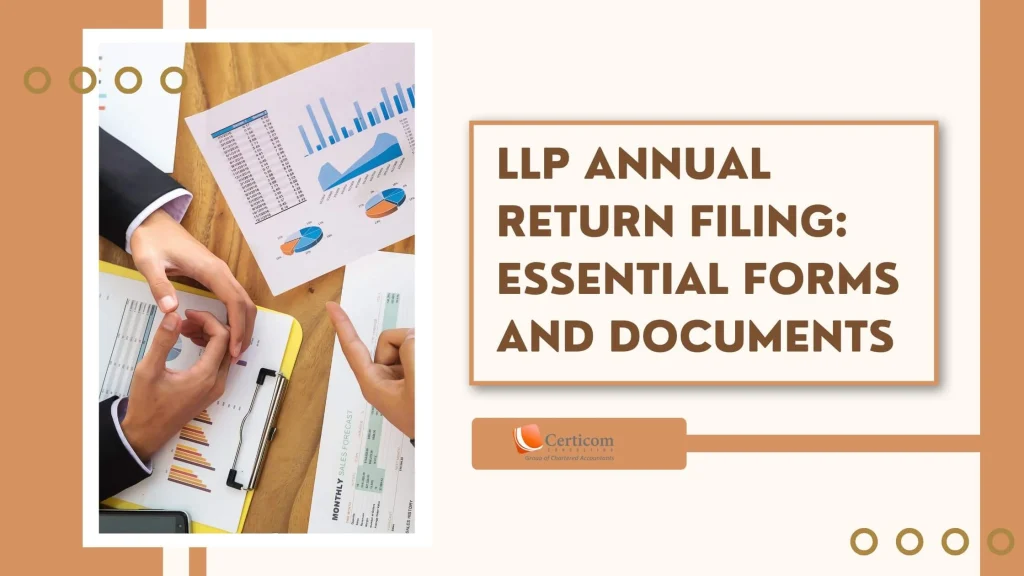LLP Annual Return Filing: Essential Forms and Documents

Filing annual returns is a vital compliance requirement for Limited Liability Partnerships (LLPs). It ensures regulatory transparency and keeps authorities informed about the financial and operational standing of the LLP.
Mandatory Forms for LLP Annual Compliance
1. Form 11 (Annual Return)
Due Date: May 30 of each financial year.
Purpose: Provides details of partners, capital contribution, and LLP structure.
Applicability: Mandatory for all LLPs, regardless of turnover or activities.
2. Form 8 - Statement of Accounts & Solvency
Due Date: October 30 each year.
Purpose: Declares the LLP’s financial position, including assets, liabilities, and income.
Signing Requirement: Must be digitally signed by designated partners and a Chartered Accountant if the LLP’s turnover exceeds ₹40 lakh or if the partner’s contribution exceeds ₹25 lakh.
3. Income Tax Return (ITR-5 Form)
Purpose: Used for filing LLP income tax returns.
Due Date:
July 31 (if audit is not required)
October 31 (if audit is required)

Essential Documents for LLP Compliance
To streamline the annual return filing process, LLPs should prepare and submit the following documents:
LLP Agreement & Amendments (if applicable): Required for verification and compliance.
Financial Statements: Includes the balance sheet and profit & loss account.
Bank Statements: Needed for the financial year to reconcile transactions.
Contribution Details: Statement of capital contributions made by partners.
Audit Report (if applicable): Necessary if the LLP’s turnover exceeds ₹40 lakh.
PAN & TAN of LLP: Used for tax filing and regulatory compliance.
Advantages of Timely LLP Return Filing
Timely compliance with LLP filing requirements offers multiple benefits:
Avoids Penalties: Late filing attracts a penalty of ₹100 per day.
Ensures Legal Compliance: Keeps the LLP active and in good standing.
Enhances Credibility: Facilitates loan approvals and government clearances.
Prevents Legal Complications: Avoids being marked as non-compliant or defaulting.
Read More: MSMEs in India: Harnessing Growth through Recent Tax Reforms
Conclusion
Filing LLP annual returns on time is both a regulatory obligation and a strategic move to maintain credibility and legal standing. Preparing and submitting the required forms and documents in advance ensures smooth operations and helps avoid unnecessary penalties. Proper planning and adherence to deadlines are crucial for keeping your LLP compliant and operationally efficient.
Related Post
Have You Reported Your Foreign Assets in Your Income Tax Return?
A Beginner’s Guide to E-Filing Income Tax Return for FY 2024-25
Faking Tax Deductions? You Could Be Penalised Up To 200% Under Income Tax Rules
Book A One To One Consultation Now For FREE
How can we help? *












